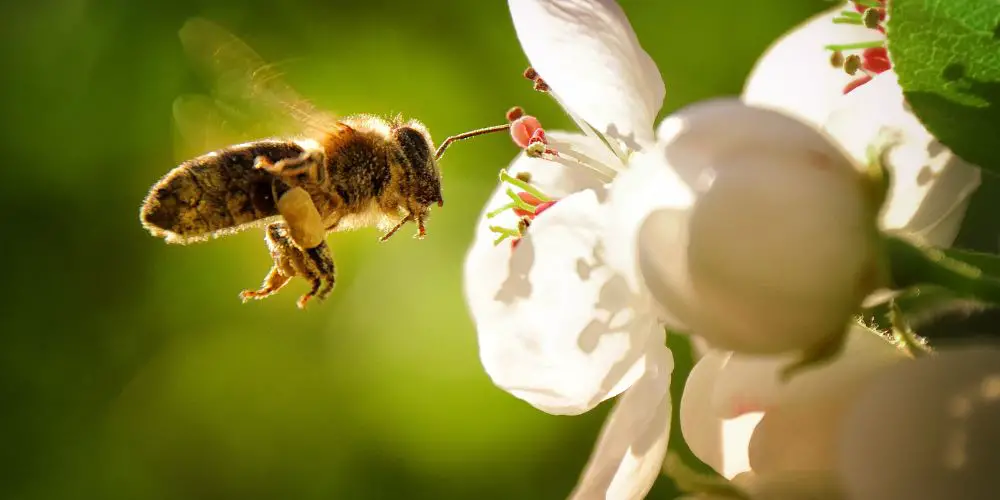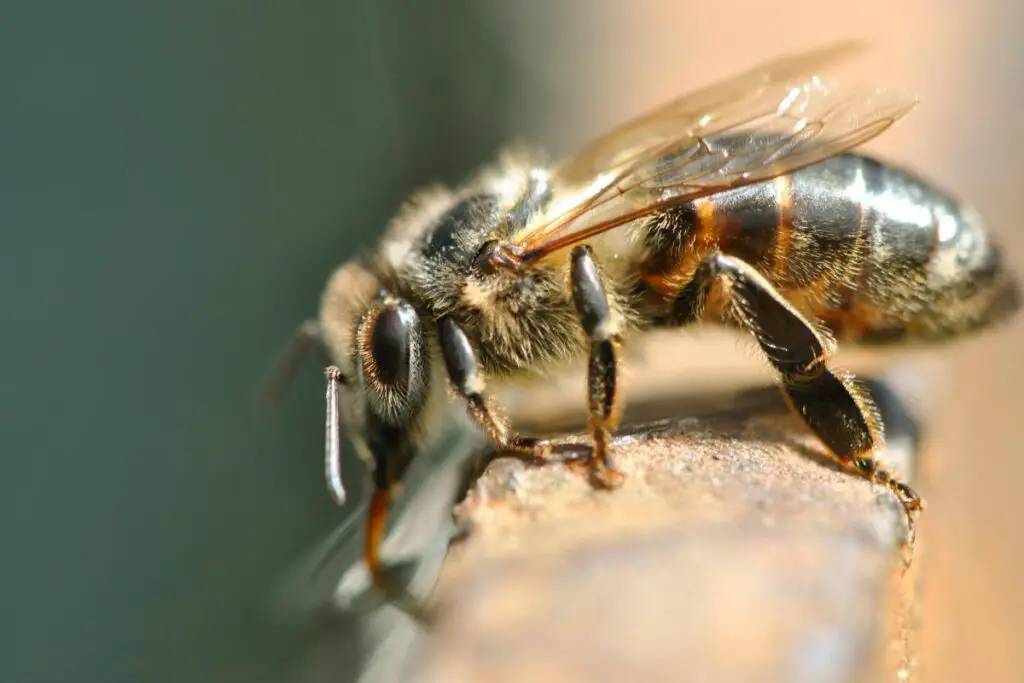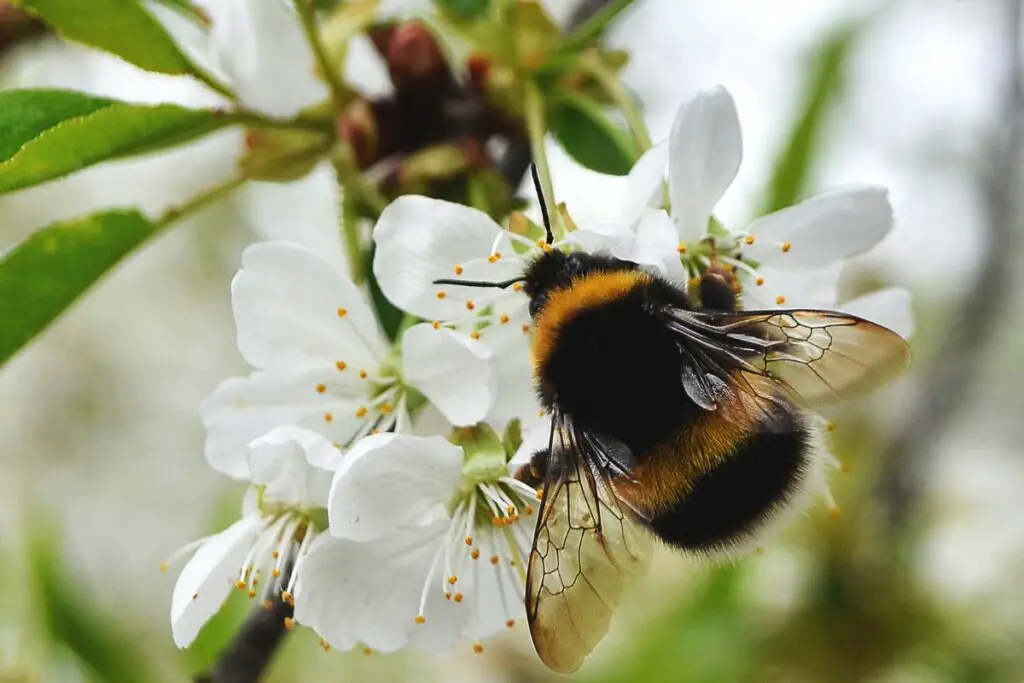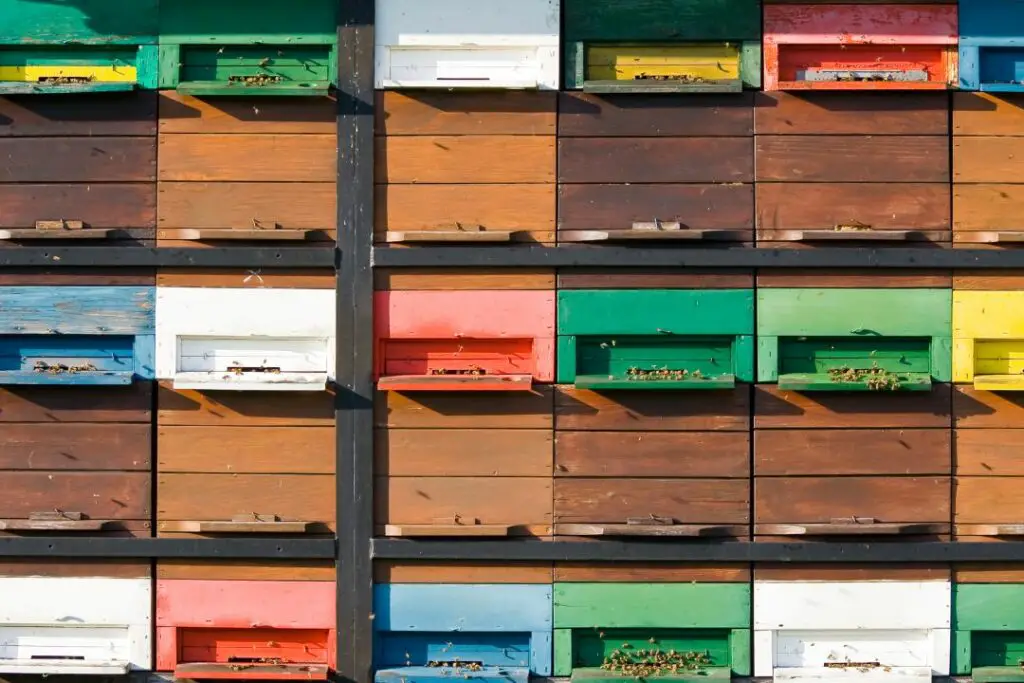Last updated on September 20th, 2023 at 08:41 pm
Do you want to make sure your garden is thriving? Are you looking for natural, sustainable ways to help it flourish?
Then it’s time to look into the amazing benefits of bee pollination. From creating stronger and healthy plants to providing essential nutrients in the soil.
Not only that, but you’ll be playing an important role in helping protect our fragile ecosystem too!
In this blog post, we’ll explore why bee pollination is so important, both for your backyard and beyond.
Stronger and healthier plants and increase crop yield
The act of pollination helps to ensure that plants can produce more flowers, fruits, and vegetables.
As a simple rule, more plant life will help produce a viable pollinator habitat and can help attract bees to your garden.
This process also strengthens plants’ genetic diversity, which makes them better equipped to survive in different environmental conditions.
The more bee-pollinated flowers your native plants have, the greater their chance of developing into abundant fruit and vegetable crops.
Example – Strawberry plants visited by a range of solitary bees and bumblebees have been proven to increase the size and quality of fruit produced, leading to a better quality of food.
The increased crop yield can be a blessing if you’re growing fruits or veggies at home and it can even have a monetary benefit if you sell your produce to consumers.
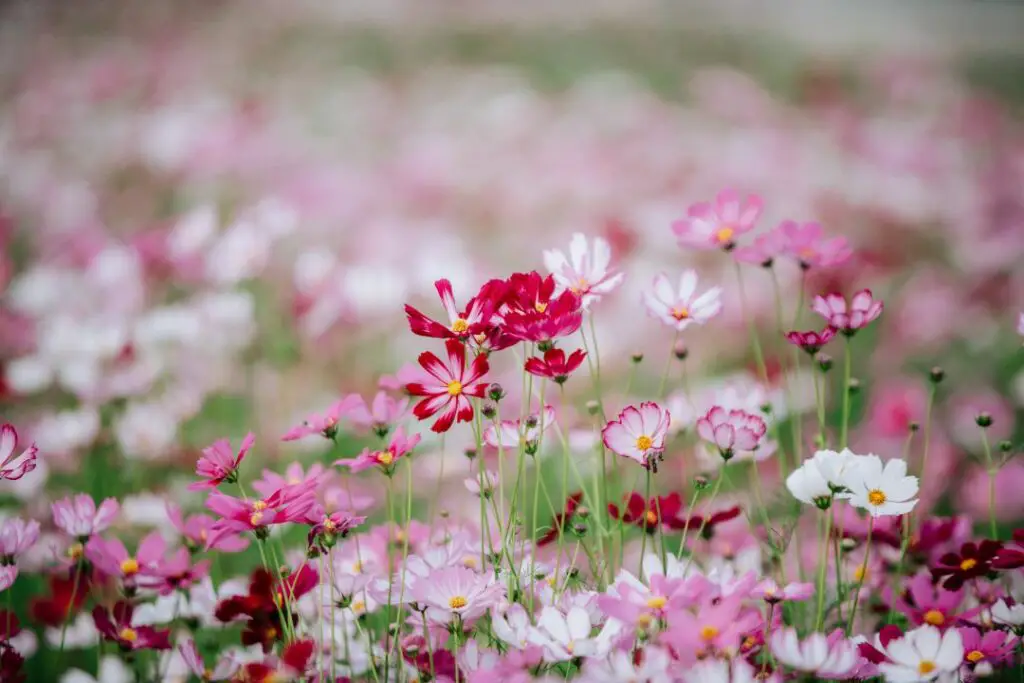
Greater biodiversity in the garden
By attracting bees you encourage a greater diversity of plants and insects in your garden, which helps create a healthy ecosystem better equipped to deal with environmental changes.
*Fun fact – Did you know bees are responsible for pollinating a whopping 80% of wildflowers in Europe?
The increased biodiversity can also help attract beneficial predators into your garden.
Predators help control the population of their prey species, preventing them from overgrazing or over-consuming shared resources in the environment.
In domestic gardens, predators include birds (some of which may be animal pollinators), spiders, and various types of insects.
Example -Ladybugs are voracious predators of aphids, which are small sap-sucking insects that can cause significant damage to plants. If left unchecked, aphid populations can explode and decimate a garden, but ladybugs can help to control their numbers.
Overall, predators are important for biodiversity and a colony of bees goes a long way to ensuring there’s ample food to go around.
The ability to grow a wider variety of crops
The pollination process allows different varieties of fruits and vegetables to be grown side by side, allowing you to experiment with different flavours and textures in your cooking.
Some of our favourite choices for a sunny garden are:
- Common herbs
- Vegetable gardens
- Fruit trees
The best choice for your garden will be dictated by your local weather and your personal preference.
For me personally, the addition of some Basil, Coriander and Parsley is the perfect combination for anyone who enjoys adding some serious flavour to their home cooking.
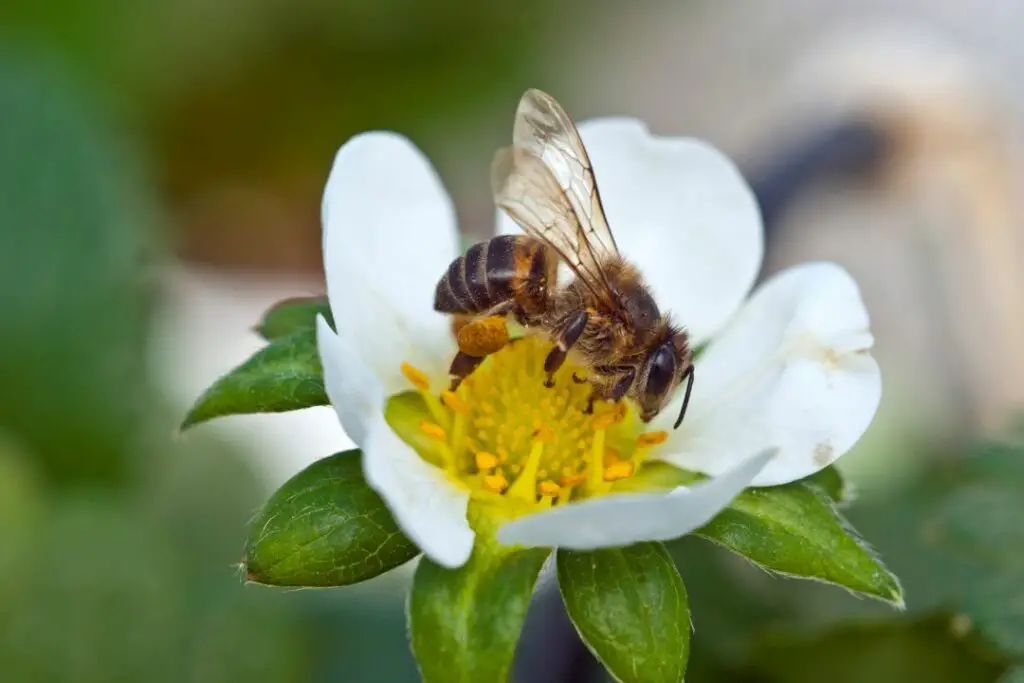
Top tips for encouraging bee pollination and creating pollinator gardens
If you want your garden buzzing with bees from spring through to late summer then there are some easy ways of trying to encourage them.
Offer a wide range of flowering plants
By planting a variety of flowers that bloom at different times through the growing season, you’ll be providing a continuous supply of nectar and pollen for the majority of the year.
Different bee species have different pollination behaviours so lots of variety will help attract a variety of solitary, bumble and honeybees.
Create a bee drinking station
Bees get thirsty in their search for food so ensuring you’ve got a viable water source is going to make your garden much more attractive to prospecting bee scouts.
Something like a shallow pot or small birdbath is perfect but just make sure to leave some objects above the water to give thirsty bees an area to land on.
Avoid the use of pesticides
One of the first signs of pesticide use in a garden is the absence of bees. Pesticides can seem like a great way to keep pests away from your plants but the impact on bee populations nearby is catastrophic.
A key indicator of this would be finding bees with their youngest sticking out which is a clear sign they’ve come into contact with a man-made toxin.
Start backyard beekeeping
Keeping bees is becoming more and more popular in the UK and the United States with awareness of the plight of bees doing wonders to encourage this fascinating hobby.
Head over to our guide on how to start beekeeping to get the low down on everything you need to know, the equipment you need and what to expect in your first year with a new colony of honeybees.
Conclusion
Bee pollination plays an essential role in helping to ensure that your garden is at its best, both in terms of producing healthy crops and providing a balanced ecosystem.
Bees can help increase crop yield and variety while providing a beautiful buzz amongst your flowers.
Inviting bees into your garden also helps protect our fragile ecosystem by turning the tide on habitat loss and helping to support honey bees amongst many other species of bees.
FAQs:
How can bee pollination benefit my garden?
The presence of bees in your garden can provide a host of benefits, including increased crop yield and variety, reduced need for chemical pesticides, extended growing season with higher quality produce, natural pest control, and the ability to attract other beneficial insects such as ladybugs and butterflies.
What is the best way to invite bees into my garden?
The best way to encourage more bees into your garden is by planting flowers that they prefer. Examples include lavender, rosemary, chamomile, mint, and sunflowers.
Additionally, you should also avoid using any harsh chemical pesticides or fertilizers which could be damaging to the bees. Providing a water source can also help attract more bees into your garden.
Is bee pollination dangerous?
The process of bee pollination is generally safe, although it’s important to be aware of the potential risks. The best way to ensure safety is by avoiding direct contact with the bees and wearing protective clothing when necessary.
If you are allergic to bee stings, then it’s advised that you take extra precautions or seek advice from a professional before attempting any beekeeping activity in your garden.
It’s also important to keep children and pets away from the area while the bees are present, as they could pose a risk if disturbed.
How can bee pollination help protect the environment?
Bee pollination helps promote healthier plants and increase biodiversity, which in turn helps preserve our fragile ecosystem.
The natural pest control provided by bees also eliminates the need for chemical pesticides which could be damaging to not just humans but also other species. The presence of bees in a garden can also attract other beneficial insects, such as ladybugs and butterflies, further helping to create a balanced ecosystem with more predators than prey.

